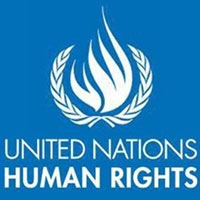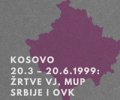HLC Reported to UN Human Rights Committee on the Situation in Serbia

As part of its 119th session scheduled to take place from March 6th until March 29th, 2017, the UN Human Rights Committee (Committee) will discuss the third periodical report by Serbia on the application of the International Covenant on Civil and Political Rights (International Covenant). The Humanitarian Law Center (HLC) has sent a report to the Committee on the situation in Serbia and the progress made since the previous reporting cycle in 2011.
In its Report the HLC has focused on the respect for the right to life, the prohibition of torture and other cruel, inhumane and humiliating treatment or punishment, and the right to an effective remedy (contained in Articles 2, 6 and 7 of the International Covenant), and concentrated on the list of additional issues that the Committee sent to Serbia regarding the third periodical report and the responses Serbia has given in that regard.
The HLC has informed the Committee that not enough has been done with regard to the search for the persons who are still registered as missing in the conflicts in the former Yugoslavia, since not a single new location containing the mortal remains of the victims of war crimes committed in Kosovo has been found since December 2013, even though there are sufficient indications that there might be more undiscovered mass grave sites in Serbia. Regional cooperation with the neighbouring countries is slow and inefficient. Serbia does not implement the recommendations by the Committee on Enforced Disappearances, particularly with regard to the opening of state archives for the purpose of finding the missing persons, and it also fails to enforce in practice its own commitment expressed in the National Strategy for the Prosecution of War Crimes, pursuant to which one of the top priorities in the prosecution of war crimes must be to clarify the fates of as many missing persons as possible.
Families of the missing, who have been trying unsuccessfully to find the bodies of their loved ones for years, can realize their right to support from the state only if they pronounce them as dead. There are many other categories of victims who have been deprived of their rights in Serbia besides the families of the missing, and these include wartime sexual violence victims, victims who fled from other republics of the former Yugoslavia, persons who have sustained a lower degree of disability or who suffer psychological consequences of the violence endured, as well as all those who were victims of the forces that are not considered as “the ennemy”. The currently applicable Law on the Rights of Civilian Invalids of War does not recognize these categories of victims. The intention to preserve the aforementioned discriminatory regime in the proposed Bill on the Rights of Veterans, Military and Civilian Invalids of War, points to the lack of will on the side of the Government of the Republic of Serbia to modify its legislative practice, which has already been the subject of a reaction coming from the Council of Europe.
The HLC has elaborated for the Committee on its opinion that Serbia does not put enough efforts into the prosecution of persons responsible for war crimes, pointing to the slow pace of the work, as a consequence of which a majority of the crimes will never be prosecuted, and also pointing to the decrease in the number of indictments filed, to the impunity of middle- and high-ranking perpetrators, to the fact that Serbia has not appointed a War Crimes Prosecutor for more than a year now, and to the constant lack of capacities in the Office of the Prosecutor and the War Crimes Investigation Service and the dismissals of key people among the police and specialized judges, which represents a violation of independence and efficiency in the cases of war crimes. The HLC has also underlined that no one has been held accountable to date for the removal of bodies of Albanian civilian victims from Kosovo and their concealment in mass graves in Serbia.
As for the answers given by the Republic of Serbia to the Committee’s additional questions, the HLC holds that not a single concrete answer has been given. Namely, Serbia has stated that the excavations at the Kiževak location near Raška had already begun in November 2015 for the purpose of searching for the mortal remains of victims, but were later supsended owing to the lack of funding. However, they failed to give any information as to whether any funding in the budget is allocated for these activities and, if so, then what the amount of this funding is. They also failed to explain what measures are being taken to overcome a number of obstacles in the prosecution of war crimes. And finally, there is no reference to the inability of victims to achieve compensation.
The HLC is hopeful that the questions it has pointed to in its Report will be put to the delegation of Serbia, and that the Committee will include concrete orders in its concluding remarks aimed at further improvement of the prosecution of war crimes and the respect for victims’ rights.








